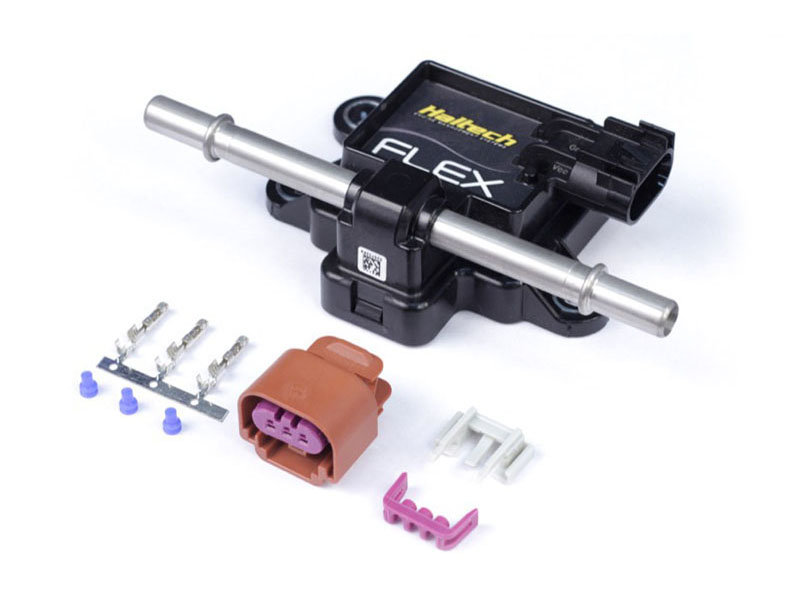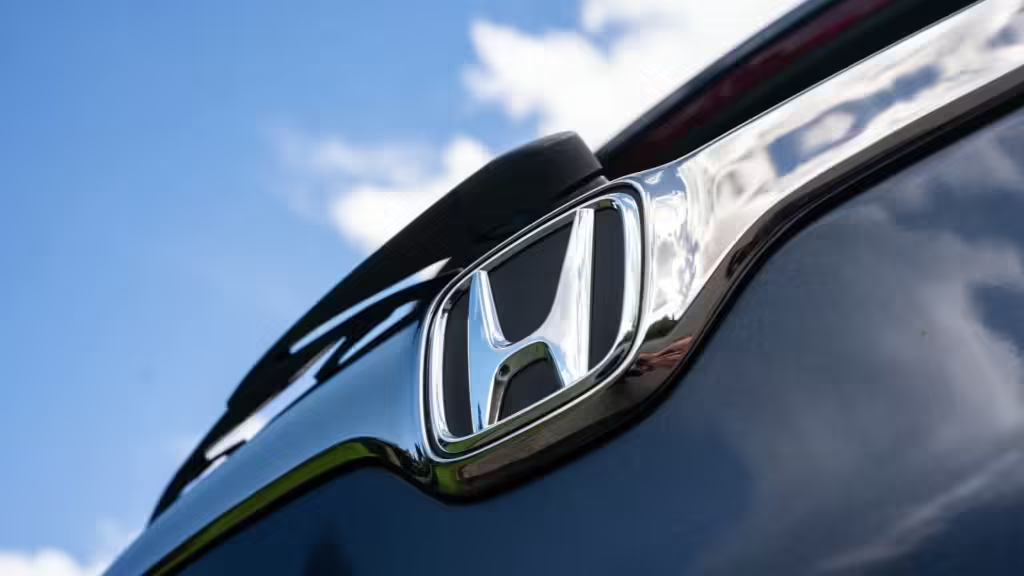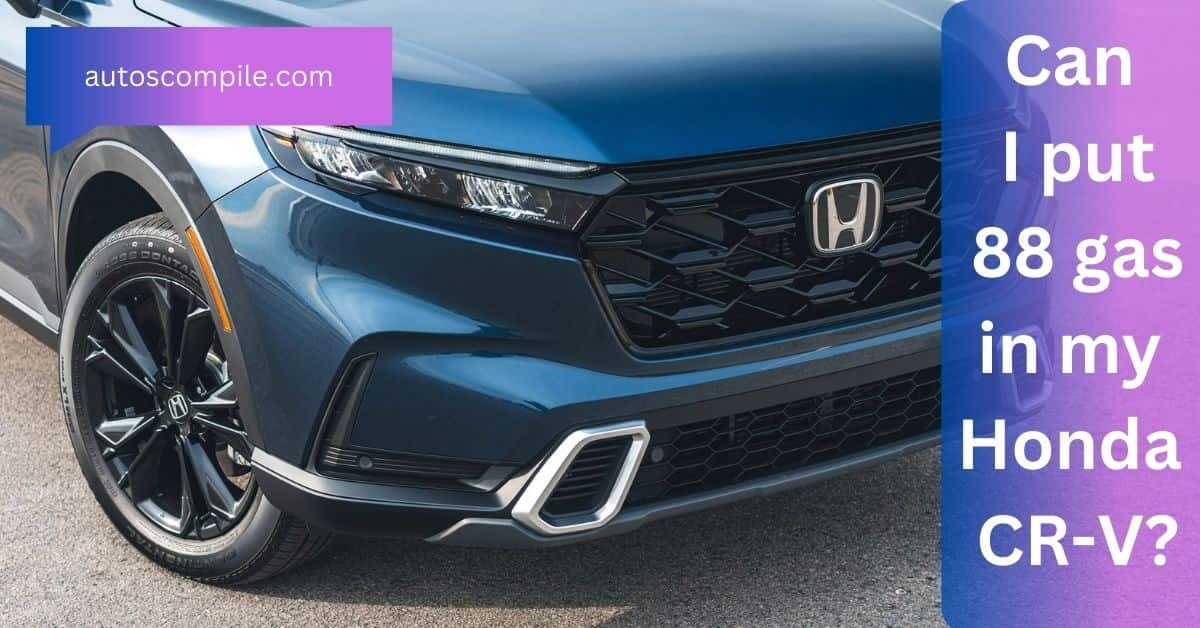I tried putting 88 gas (E15) in my Honda CR-V thinking it would save me money, but I quickly noticed engine performance issues. After doing some research, I found out that Honda recommends using regular unleaded gas with an 87-octane rating for optimal performance. Stick to the recommended fuel to avoid potential damage and ensure a smooth ride!
Can I put 88 gas in my Honda CR-V? No, you should not use 88 gas (E15) in a Honda CR-V. Honda recommends using regular unleaded gas with an 87-octane rating, as 88 gas contains higher ethanol levels that can damage the engine and fuel system. Stick to 87-octane fuel for optimal performance.
Can I put 88 gas in my Honda CR-V? I once filled my Honda CR-V with 88 gas, hoping for better mileage, but it led to unexpected engine troubles! Now I always stick to the recommended 87-octane fuel for a smoother and safer drive.
What Is 88 Gas?

88 gas, commonly known as E15, is a fuel blend containing 15% ethanol and 85% gasoline, with the “88” indicating its octane rating. It is considered a more environmentally friendly alternative to standard fuel (E10), which contains 10% ethanol, as ethanol is derived from renewable sources like corn and helps reduce greenhouse gas emissions.
The main appeal of 88 gas lies in its cost-effectiveness; it is generally cheaper than other fuel options since ethanol is less expensive than pure gasoline.
For drivers looking to save at the pump, E15 can be an attractive choice, and its slightly higher octane rating compared to standard 87-octane fuel may provide a marginal performance improvement.
What Fuel Does Honda Propose For The Cr-V?
Honda recommends using standard unleaded gas with an octane rating of 87 or higher for the CR-V to ensure optimal performance, fuel efficiency, and engine longevity. This recommendation is based on the engine’s design, which is optimized for this type of fuel.
Using fuel with a lower octane rating can cause engine knocking or pinging, potentially leading to long-term damage. While Honda vehicles, including the CR-V, can safely run on fuel blends containing up to 10% ethanol (E10), which is standard in most U.S. fuel stations.
The use of higher ethanol blends like E15 (88 gas) is more complicated. Honda’s owner manuals often warn against using fuel with more than 10% ethanol unless the vehicle is specifically designed for it.
Is 88 Gas Satisfactory For A Honda Cr-V?
Using 88 gas, also known as E15 (containing 15% ethanol), in a Honda CR-V depends on the model year. For CR-Vs manufactured from 2011 onward, E15 is generally acceptable, as these vehicles are designed to handle fuel blends with up to 15% ethanol.
However, Honda recommends using standard unleaded gasoline with a minimum octane rating of 87 for optimal performance and longevity. If your CR-V is an older model or you’re unsure, it’s best to refer to the owner’s manual or consult a mechanic before using 88 gas. Always follow manufacturer guidelines to avoid potential engine issues.
Can You Use 88 Gas (E15) In Your Honda Cr-V?
You can use 88 gas (often labeled as E15, containing 15% ethanol) in your Honda CR-V if it is a 2011 model or newer. Honda recommends using regular unleaded gasoline with a minimum octane rating of 87, but many modern vehicles, including the CR-V, can handle E15 fuel.
However, for older models or if you’re unsure, it’s best to check your owner’s manual or consult a mechanic to ensure that using 88 gas won’t cause any issues with your engine or fuel system.
Potential Issues With Using 88 Gas (E15) In Your Honda Cr-V:
Issues with Using 88 Gas (E15) in Your Honda CR-V are:
1. Motor Execution Issues:
Ethanol consumes more bubbling than fuel, and exceptional activities of ethanol can make the motor run extravagantly hot. This can induce shocking speed increase, disturbing excess by, and other execution issues.
2. Fuel Design Naughtiness:
Ethanol is a dissolvable, which can cause wear on the adaptable and plastic parts in the fuel framework, inciting expensive fixes.
3. Guarantee Stresses:
if you use fuel that isn’t suggested, you could void your affirmation. Honda can deny claims related to motor harm or fuel framework issues accomplished by rash fuel use.
Benefits Of Using 88 Gas (E15):
- Cost Savings: E15 (88 gas) is often cheaper than standard gasoline, helping drivers save on fuel costs. The higher ethanol content makes it more affordable at the pump compared to regular 87-octane fuel.
- Environmental Benefits: 88 gas contains a higher ethanol content, which is a renewable resource. Using E15 can reduce carbon emissions and dependency on fossil fuels, contributing to a more eco-friendly driving experience.
- Energy Security: By using ethanol, drivers help support domestic energy production, which reduces the reliance on imported oil and promotes energy independence.
Risks And Challenges Of Using 88 Gas (E15) In Incompatible Vehicles:
Using 88 gas (E15) in vehicles not designed for it can cause potential engine damage, such as knocking or corrosion of fuel system components. It also offers lower energy content than regular gasoline, leading to reduced fuel efficiency and more frequent trips to the pump.
Additionally, using E15 in vehicles not approved for it may void the manufacturer’s warranty, resulting in expensive repairs that won’t be covered. Another downside is that 88 gas isn’t as widely available, making it difficult to find at many fuel stations.
Searching For The Flex-Fuel Pointer:

To determine if your Honda CR-V can safely use 88 gas (E15) or higher ethanol blends, it’s important to check for a Flex-Fuel indicator. Flex-fuel vehicles (FFVs) are specifically designed to handle higher ethanol content, such as E15 or E85.
You can identify if your CR-V is Flex-Fuel capable by checking for a yellow fuel cap, which often indicates Flex-Fuel compatibility.
Additionally, your owner’s manual will provide details about the recommended fuel types, and some vehicles may have badges or emblems stating “Flex-Fuel.” You can also verify this by checking your vehicle’s VIN online.
What Happens If You Accidentally Put 88 Gas In Your Cr-V?
If you accidentally put 88 gas (E15) in your Honda CR-V, the outcome will largely depend on the model year and whether your vehicle is designed to handle higher ethanol blends.
For CR-V models from 2011 onward, using E15 is generally acceptable, and you may not experience any immediate issues. However, if your CR-V is an older model or not rated for These include engine knocking or pinging due to the higher ethanol content, which can lead to engine damage over time.
Additionally, you might notice a decrease in fuel efficiency, requiring more frequent refueling. If you’re unsure about your vehicle’s compatibility, it’s advisable to consult your owner’s manual or a mechanic for guidance. In most cases, if you only filled up once with E15, it should be fine, but consistently using it in an incompatible vehicle could lead to long-term issues.
Decisions As Opposed To 88 Gas For Your Honda Cr-V:
Decisions as opposed to 88 Gas for Your Honda CR-V are;
1. Standard Unleaded Gas (87 Octane):
The most trustworthy choice for your CR-V is standard unleaded gas with a 87-octane rating. It’s broadly open, sensible with your vehicle, and proposed by Honda for ideal execution and future.
2. Premium Gas (91 or 93 Octane):
While premium gas isn’t required for most CR-V models, several drivers pick higher-octane fills in the conviction that it further makes execution or capacity. At any rate, besides if your CR-V’s motor unequivocally calls for premium fuel, there’s no goliath advantage to utilizing it.
3. E10 Gas:
E10 gas, which contains 10% ethanol, is the standard fuel all that considered corner stores. It’s safe for your Honda CR-V and follows the maker’s thoughts. E10 is likewise usually open and reasonable, making it a viable decision for most drivers.
What Are The Truly Lengthy Impacts Of Remembering 88 Gas For Your Honda Cr-V?
Using 88 gas (E15) in your Honda CR-V can lead to several long-term issues, especially if your vehicle isn’t designed for higher ethanol blends. Over time, the E15 can cause engine knocking or pinging, resulting in significant wear on engine components.
Ethanol’s corrosive nature may also damage fuel lines, gaskets, and injectors, leading to costly repairs.
Additionally, higher ethanol content can attract moisture, causing phase separation in the fuel tank, which may lead to rust and clogged filters, negatively impacting performance.
While E15 may be cheaper, it has lower energy density, potentially reducing fuel efficiency and requiring more frequent refueling.
Furthermore, using E15 in an incompatible vehicle could void your warranty, leaving you responsible for any repairs. Always consult your owner’s manual to ensure you’re using the right fuel for your CR-V.
Fuel Construction Issues:
Using higher ethanol content fuel like 88 gas (E15) can cause several issues in vehicles not designed for it. Ethanol’s corrosive nature can damage fuel system components, such as fuel lines and injectors, leading to leaks and expensive repairs.
It can also attract moisture, resulting in clogged fuel filters and injectors, which affects engine performance. Many older vehicles aren’t equipped to handle higher ethanol blends, causing rubber components to break down and leading to fuel leaks.
Additionally, E15 has lower energy density, which may reduce fuel efficiency and necessitate more frequent refueling. Finally, its higher volatility can increase the risk of vapor lock, causing performance issues, especially in hot weather. Always consult your owner’s manual to ensure you’re using the right fuel for your vehicle.
Continue Going Considerations On Remembering 88 Gas For A Honda Cr-V:

With everything considered, while 88 gas could have every one of the reserves of being financially savvy and harmless to the natural framework choice, it’s not proposed for use in most Honda CR-V models.
The potential for motor hurt, diminished execution, and voiding your affirmation adjusts the momentary store resources at the siphon. For ideal execution and future, stay with standard unleaded gas with an octane rating of 87 or higher, as proposed by Honda.
Before improving your controlling tendencies, dependably counsel your vehicle’s proprietor’s manual to guarantee you’re including the right fuel for your CR-V.
Faqs:
1. How do I safely dispose of 88 gas if I accidentally use it in my Honda CR-V?
If you accidentally fill your CR-V with 88 gas, the safest way to “dispose” of it is by driving until the tank is almost empty, then refilling with the correct fuel. Avoid draining the tank yourself, as this could lead to safety and environmental hazards.
2. Does the Honda CR-V Sport handle 88 gas differently than other trims?
No, the Honda CR-V Sport trim uses the same type of engine as other trims. Like other models, it’s not designed to handle 88 gas, and using it could cause similar problems.
3. Can using 88 gas lead to overheating in my Honda CR-V?
Yes, using 88 gas could cause your Honda CR-V to run hotter. Ethanol burns at a higher temperature than gasoline, and engines not designed for this may experience overheating or other related issues.
4. Are there long-term maintenance costs associated with using 88 gas in a Honda CR-V?
Long-term use of 88 gas could lead to higher maintenance costs. The ethanol can wear out engine components faster, leading to issues with the fuel system, engine, and catalytic converter, all of which could require expensive repairs.
Conclusion:
Can I put 88 gas in my Honda CR-V? While 88 gas (E15) may seem like a cost-effective option, it is not recommended for most Honda CR-V models. The higher ethanol content can cause engine performance issues, fuel system damage, and potentially void your warranty. To ensure the best performance and long-term health of your CR-V, stick with regular unleaded gas (87 octane) as suggested by Honda. Always refer to your owner’s manual for proper fuel recommendations.

